Reply To:
Name - Reply Comment
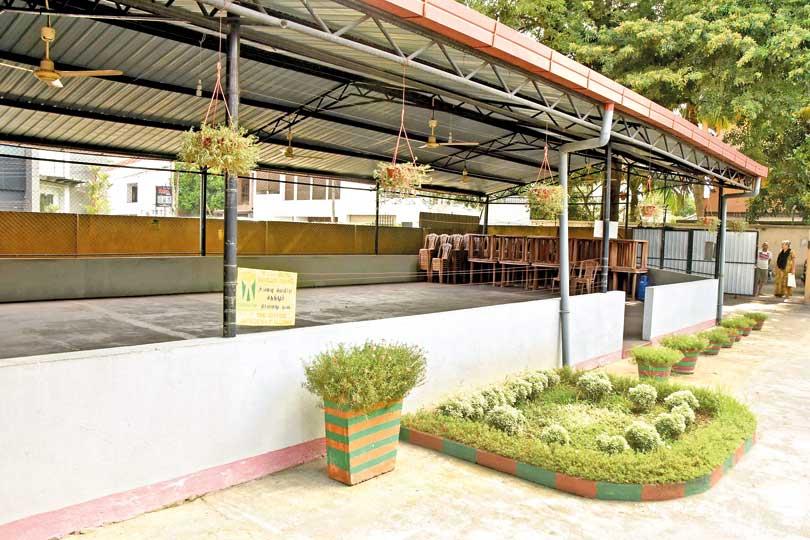
 Having a free meal is a dream in today’s context; particularly for those in the lower strata of the society. Although the United Nations lists alleviation of poverty and hunger as Sustainable Development Goals, they seem to be far from being achieved. Sri Lanka, once an agricultural nation, recently witnessed a case of a child who died of hunger. It’s in this context that initiatives like the Janaposha Foundation were begun with the sole purpose of satisfying another person’s hunger. But with the Easter Sunday attacks, flames of hatred have been fanned to the extent that many Muslim-owned businesses were threatened. Recently, the Foundation too fell prey to extremist elements and in turn the management ceased its operations with immediate effect.
Having a free meal is a dream in today’s context; particularly for those in the lower strata of the society. Although the United Nations lists alleviation of poverty and hunger as Sustainable Development Goals, they seem to be far from being achieved. Sri Lanka, once an agricultural nation, recently witnessed a case of a child who died of hunger. It’s in this context that initiatives like the Janaposha Foundation were begun with the sole purpose of satisfying another person’s hunger. But with the Easter Sunday attacks, flames of hatred have been fanned to the extent that many Muslim-owned businesses were threatened. Recently, the Foundation too fell prey to extremist elements and in turn the management ceased its operations with immediate effect.
When the Daily Mirror visited the deserted Janaposha Foundation premises down Vipulasena Mawatha, we met Mohamed Nazar, a managerial-level employee supervising the operation. “This is the first outlet we commenced back in 2012 and we saw how crowds started coming in,” he said. “That motivated us to commence the second outlet at Kalubowila in 2016 and the other at Maharagama in 2017. Around 11,000 people visit these hospitals daily and those coming from afar rest their hopes on the only facilities available at the Foundation. So the culprits who say that our underlying agenda is to sterilise people is utterly misleading. The patients who visit the cardiology unit are over 50, those who come to the cancer hospital have already given up on their lives; so we try to help them by offering a meal. They simply have no knowledge.
We give breakfast as well as lunch and some people don’t have food from home. They get bread, dhal, pol sambol and tea while for lunch they get rice and curry with fish. We also have a toilet facility which is a relief for most patients as toilet facilities in the general hospital are appalling. They are sick people and this is their happiness. We prepare meals for over 600 people. This operation is different to a dansala ( a place where free meals are given) because those who come here can eat as much as they want.
Some people have to wait for sometime to take their medicine. Those who come from outstation cannot consume food from shops due to allergie
Some people have to wait for sometime to take their medicine. Those who come from outstation cannot consume food from shops due to allergies. So they come here. It wasn’t easy to develop this operation to this level. Initially we had close to 1250 people coming here, but after the attacks the numbers reduced to around 500. Now we don’t know what we would do next.”
“We initially received a message on Facebook that requested us to cease the functioning of this place,” said M. A Sahabdeen, General Manager of the Foundation. “I don’t want to reveal the names of these people, but they claimed that we were adding sterilisation pills to the food we give. On another instance, the hospital staff issuing tickets have ceased to issue them and after that we had less numbers. It was after these two incidents that a Parliament minister made a request to inspect all Muslim-owned businesses near Apeksha Hospital. People have started a dialogue about this sterilisation scare and yet again, several groups whom I refrain to reveal the identities asked us to cease operations. They asked us to help people by other means without giving them food.
When the CID investigated the matter and raised a question as to how we obtain funds, we gave them the reports of our donors, details about the registration of business, food preparation and other certificates related to hygiene and health. We have around 40 people in the staff and they aren’t all Muslims. We have individuals from all religions working with us. After the food is prepared I’m the first person to have a meal and check if there’s adequate salt and spices. Hence everybody else has the same meal. Therefore, all these are baseless allegations. If we are to resume operations we need an assurance from the Government that this operation would not be threatened by any means and that we get adequate security for all our locations.”
When the CID investigated the matter and raised a question as to how we obtain funds, we gave them the reports of our donors
When asked as to what made them commence this operation, Sahabdeen recalled how he used to come to Colombo and was looking for food. “I know what it is like when someone is hungry because I have experienced it at a young age. So when I see people coming and satisfying themselves with our meals, the feeling that I have is indescribable. But now that the operations have ceased, we don’t know what we are going to do with our staff.”
Several questions were also raised about the issuance of tickets and in response, Sahabdeen said that the reason to issue tickets was to control the crowd. “If all people in the surrounding areas come here it would have been difficult for us to manage. But later on we stopped issuing tickets for those coming for breakfast.”
However, Asela Sampath, former Chairman of the Restaurant Owner’s Association claims that tickets are issued early in the morning for many people in a secretive manner. “I requested from the Government to hold an inquiry and investigate into the quality of food that they offer. If their intention is to give food to poor people why issue tickets? Why does it mention that food shouldn’t be taken out of the premises? These were several doubts we had and that’s why we had to bring it to the attention of the authorities. The Government delayed to respond, but now that the operations have been ceased, they could do a thorough investigation as to how funds are being propagated and test the quality, hygiene and cleanliness of food.”
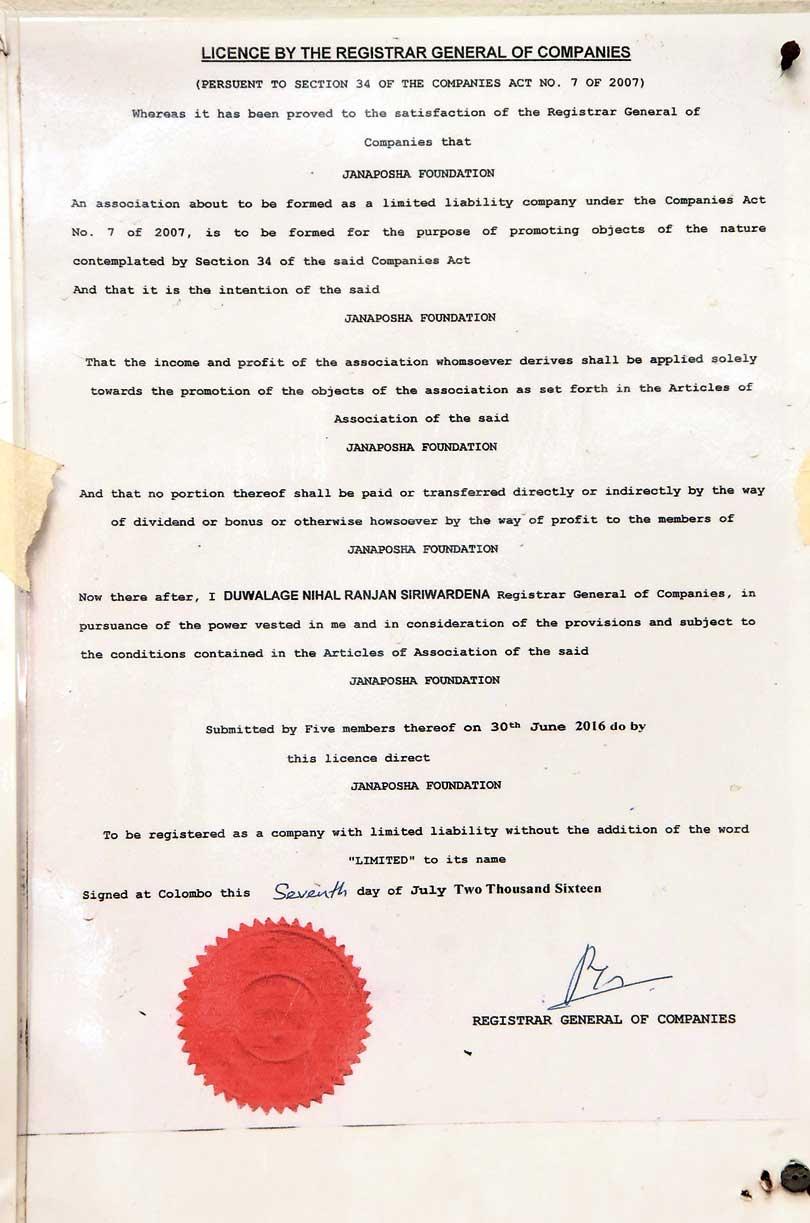
“The Easter Sunday Attacks, not only devastated the lives of many innocent people and their loved ones, but it also affected the trust between communities and it made us lose confidence in the society,” said Aritha Wickramasinghe, a finance lawyer and an activist who promotes LGBTIQ rights and the rights of women, children and ethnic minorities. “The breakdown in law and order soon after that heinous terror attack was also really tragic. Such terror attacks are not new to Sri Lanka or the world. We experienced nearly 30 years of terror with the LTTE. But the level of breakdown in law and order and the communal mistrust this caused is something we haven’t seen since 1983.”
“We live in an age of not just fake news but deep fake news,” he added. “With social media, it is extremely easy to create lies and spread it fast with no accountability. There are people, as always, who benefit from the breakdown of social order and civil conflict and these same people are exploiting an inefficient and selective law enforcement and justice system to cause that conflict. The recent fake news article spread by consistently racist publication Diwaina is a good example of this age of unaccountable fake news and our selective justice system. Whereas a woman can be put in jail for hate speech for wearing a ship’s wheel on her dress and not a single word written or uttered, some publications can publish false accusations against people and organisations on racial and religious grounds and get away with it.”
The founders of Janaposha are not losing out by not giving 500,000 free meals a year - it’s the poor who now have to go hungry
He further said that Janaposha for the last several years has been providing free meals for 500,000 people a year at Government hospitals. “This service has been so helpful to people travelling great distances and spending all day at Government hospitals. The irresponsible article in Diwaina, the newspaper that later carried a statement from a politician denying that Janaposha might be adding sterilisation pills in the free food to the poor, is outrageous! There was no evidence, not a single test done and no logic was used in writing this article. This is the brainless junk which racists and bigots catch on and use to create even more social breakdown.
At the end of the day, the only losers from all this is the everyday Sri Lankan. The founders of Janaposha are not losing out by not giving 500,000 free meals a year - it’s the poor who now have to go hungry. When businesses are boycotted, it isn’t the rich businessman that becomes poor, but it is the entire supply and consumption chain that suffers and goes bankrupt. When we allow a breakdown in law and order, investors would stay away from this country; denying our people better jobs and salaries.
“By spreading and believing in these lies, we are only harming ourselves,” Wickramasinghe continued. “Sri Lankans have created a country where people are willing to go and work as slaves in foreign countries or drown in the high seas just to escape it. We have a passport which is not worth the paper it’s printed on. Can we start asking ourselves why, please? This is what all this racism, religious violence, discrimination, war and its resulting poverty has done to us. A nation of desperate, deprived and exploited people. It breaks my heart.”
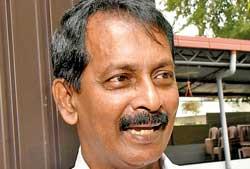 ‘Food we have from here is clean and hygienic’
‘Food we have from here is clean and hygienic’“If you go to most shops you would see how unhygienic the food is. But the food we have from here is clean and hygienic. This is why many patients depended on this place for food. Extremist elements would interfere, but will they give us food? This is my question to them.”
– D.S.D Wijesinghe, Ginigaththena
“It’s good if this operation continues. I have known this place for years. Many people come here to satisfy their hunger. The operation went well and now we are at an inconvenience.”
– Jareena, Colombo
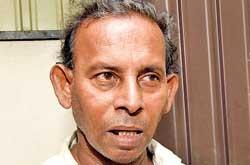 ‘It was quite convenient for us’
‘It was quite convenient for us’“Nobody gives free food. The food we had from here was clean and we had nothing to worry about allergies. Sometimes we only carry travelling expenses in hand and we would come here for meals. I have known this place for the past nine months. Even Muslim people come here to eat. We have a blood test at 9.00am and the report comes by 12.00pm. By the time we get medicine it’s around 4.00pm. So in the meantime we came here for meals and it was quite convenient for us.”
– M.A Fernando, Moratuwa
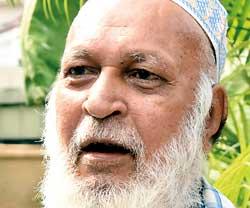
“I have been coming here for the past six months. Before I go to the clinic I have a meal from here and then return for lunch. The food was healthy and this place became a home for all of us. We urge the authorities to consider our inconvenience and request the directors to resume operations.”
– J. Musah, Grandpass